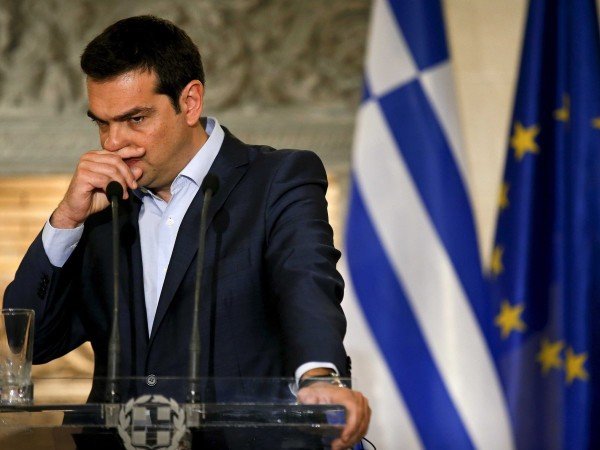Greece Bailout: Eurogroup Begins Talks on Emergency Funding
Hours after Greece’s parliament passed tough reforms required for a third bailout deal, the eurozone ministers have met to discuss on emergency funding to keep Greek banks afloat.
The Eurogroup was also due to discuss next steps in negotiating the bailout.
The Greek government is expected to survive, despite losing its majority after 38 lawmakers voted against the reforms.
Later, the European Central Bank is to consider easing a funding squeeze on Greek banks, allowing them to reopen.
Greece is facing an immediate cash crisis, with banks there closed for more than two weeks.
The European Commission has proposed giving Greece a €7 billion “bridging” loan from an EU-wide fund to help the government pay its mounting debts.
Eurozone ministers have agreed in principle to extend the loan to Greece, according to an unnamed official speaking to Bloomberg. The loan will be announced on July 17 after national parliaments have voted on the bailout deal, the official added.
Eurozone leaders agreed on the bailout in principle in Brussels on July 13, on the condition that the Greek parliament passed reforms on taxation increases and pension curbs by July 15.
PM Alexis Tsipras won the parliamentary vote by 229 votes to 64, but needed the support of opposition lawmakers to do so.
The vote paves the way for eurozone finance ministers to open detailed talks on the bailout, worth up to €86 billion.
Finland’s parliament on July 16 approved the bailout talks – one of a number of eurozone states which require a mandate from their own parliament for Greece to secure new funds.
Germany’s parliament is due to vote on the deal on July 17.
Passionate opposition came from within Alexis Tsipras’ own Syriza party, with parliamentary speaker Zoe Constantopoulou calling the measures “social genocide”.
Former Finance Minister Yanis Varoufakis was another vocal opponent.
In his address to parliament Alexis Tsipras said: “I acknowledge the fiscal measures are harsh, that they won’t benefit the Greek economy, but I’m forced to accept them.”
Since capital controls were imposed and the banks shut on June 29, Greeks have been limited to withdrawing €60 a day.
German Finance Minister Wolfgang Schaeuble, known for his hardline approach, told national radio he would submit a request for parliament to reopen negotiations on the third bailout with “full conviction”.
He also said he believed a temporary “Grexit” – Greece leaving the eurozone – would perhaps be a better option.
Meanwhile Slovakia’s Finance Minister Peter Kazimir said in a tweet he welcomed “the positive vote” but said “this is the easier part of the deal”.
By July 22, Greece must also commit to a major overhaul of the civil justice system. It has to agree to more privatization, to review collective bargaining and industrial action, and make market reforms, including Sunday trading.
The Greek parliament vote on July 16 approved:
- VAT changes including a top rate of 23% to take in processed food and restaurants; a 13% rate to cover fresh food, energy bills, water and hotel stays; and a 6% rate for medicines and books
- An increase in corporation tax from 26% to 29% for small companies
- An increase in luxury taxes on big cars, boats and swimming pools
- An end to early retirement by 2022, increasing the retirement age to 67
Opponents of the bailout measures took to the streets of Athens in mainly peaceful protests ahead of the vote on Wednesday. However, one group threw petrol bombs at police officers who responded with tear gas.
Unions and trade associations representing civil servants, municipal workers and pharmacy owners also went on strike on July 15.
